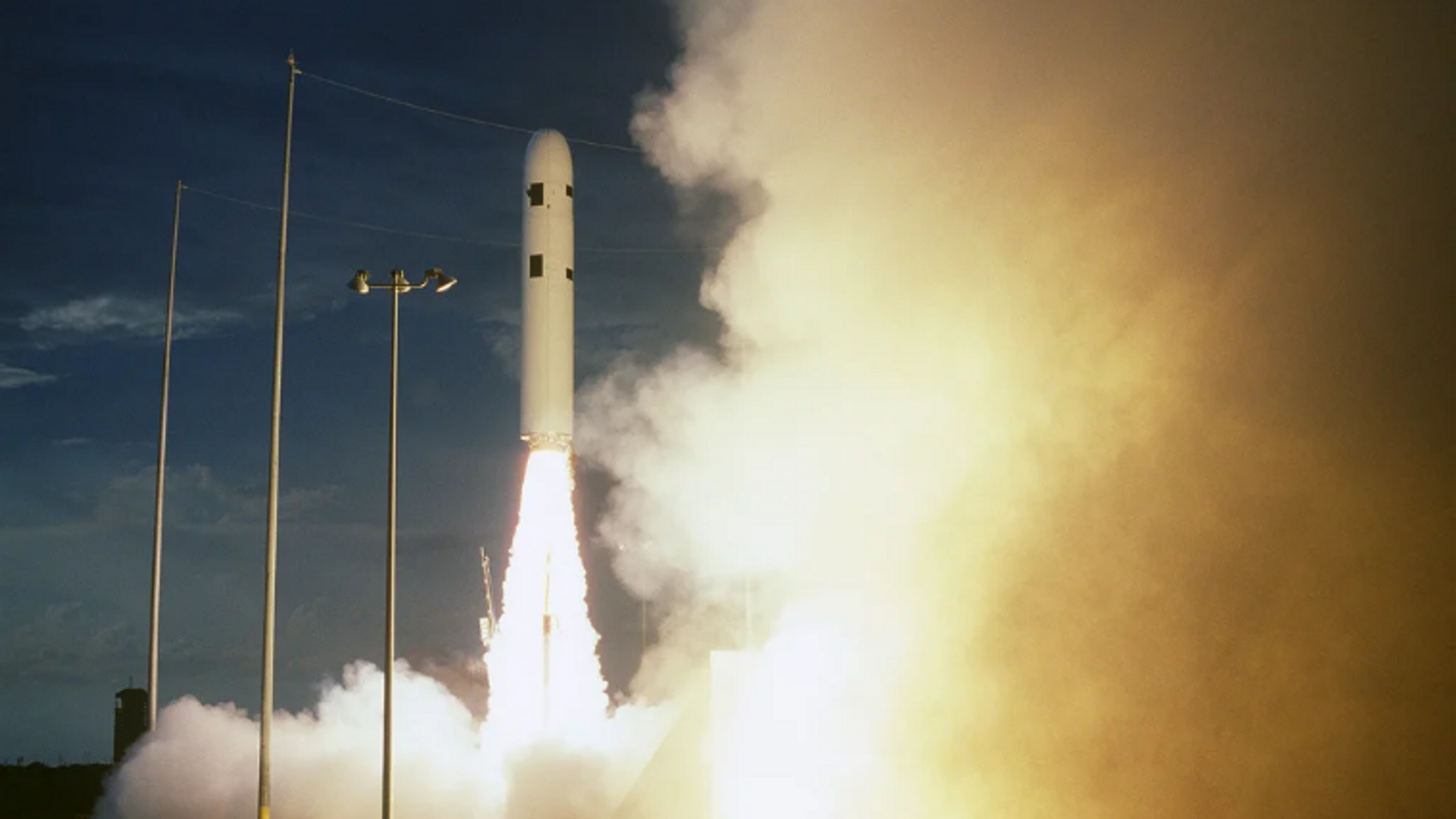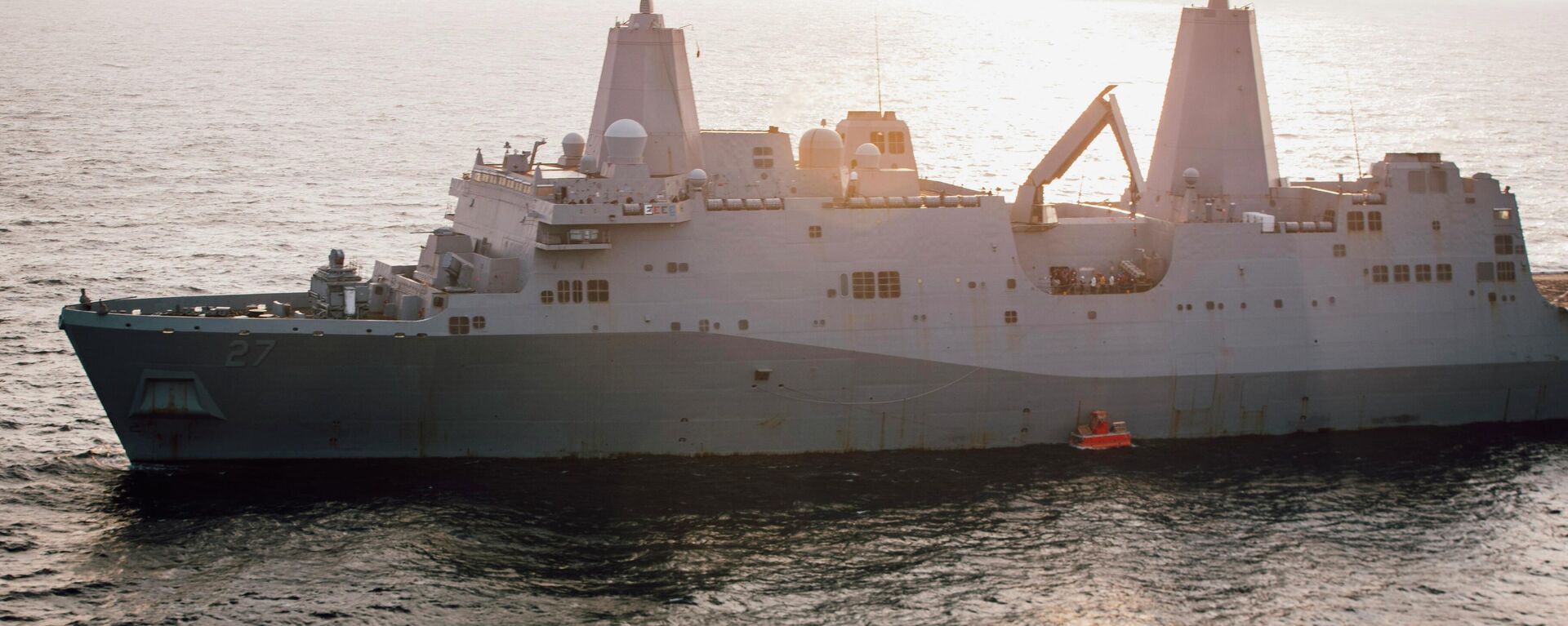https://en.sputniknews.africa/20240221/uks-navy-carries-out-unsuccessful-launch-of-trident-ii-ballistic-missile-reports-say-1065180478.html
UK's Navy Carries Out Unsuccessful Launch of Trident II Ballistic Missile, Reports Say
UK's Navy Carries Out Unsuccessful Launch of Trident II Ballistic Missile, Reports Say
Sputnik Africa
MOSCOW (Sputnik) - The navy of the United Kingdom has carried out an unsuccessful launch of a Trident II intercontinental ballistic missile (ICBM) from the HMS... 21.02.2024, Sputnik Africa
2024-02-21T08:01+0100
2024-02-21T08:01+0100
2024-02-21T08:01+0100
united kingdom (uk)
united states (us)
uk ministry of defense
atlantic ocean
navy
military
international
https://cdn1.img.sputniknews.africa/img/07e8/02/15/1065180594_0:38:760:465_1920x0_80_0_0_9400404ddd28253e312243de79d54434.png
The report said the missile dramatically misfired and crashed into the water just feet from the submarine that launched it. The missile was launched into the air, but the first-stage boosters did not ignite, and the missile carrying dummy warheads splashed into the water and sank, the report read. The newspaper reported that the incident occurred on January 30 off the coast of the US state of Florida. A probe into the circumstances of the incident was immediately launched, and a search was ordered to recover the top-secret missile technology from the seabed, the report said. The UK Ministry of Defense said in a statement issued to the newspaper that an "anomaly occurred" during the launch but assured that London's nuclear deterrent remains "effective." The newspaper reported earlier that the UK Navy was preparing to carry out the first launch of a Trident II ICBM for the first time since 2016 in the Atlantic Ocean. The missile was planned to fly over 6,000 kilometers (3,700 miles) before splashing between Brazil and West Africa. The previous launch of a Trident II ICBM from a UK submarine in 2016 also failed. The missile was planned to fly 9,000 kilometers from the Florida coast to a target southeast of Ascension Island, but it reportedly veered off course toward the United States and self-destructed.
https://en.sputniknews.africa/20240116/1064649741.html
united kingdom (uk)
united states (us)
atlantic ocean
Sputnik Africa
feedback@sputniknews.com
+74956456601
MIA „Rossiya Segodnya“
2024
Sputnik Africa
feedback@sputniknews.com
+74956456601
MIA „Rossiya Segodnya“
News
en_EN
Sputnik Africa
feedback@sputniknews.com
+74956456601
MIA „Rossiya Segodnya“
Sputnik Africa
feedback@sputniknews.com
+74956456601
MIA „Rossiya Segodnya“
united kingdom (uk), united states (us), uk ministry of defense, atlantic ocean, navy, military, international
united kingdom (uk), united states (us), uk ministry of defense, atlantic ocean, navy, military, international
UK's Navy Carries Out Unsuccessful Launch of Trident II Ballistic Missile, Reports Say
MOSCOW (Sputnik) - The navy of the United Kingdom has carried out an unsuccessful launch of a Trident II intercontinental ballistic missile (ICBM) from the HMS Vanguard ballistic missile-armed submarine while UK Defense Secretary Grant Shapps was on board, the UK media reported, citing sources and the UK Ministry of Defense.
The report said the missile dramatically misfired and crashed into the water just feet from the submarine that launched it. The missile was launched into the air, but the first-stage boosters did not ignite, and the missile carrying dummy warheads splashed into the water and sank, the report read.
"It left the submarine but it just went plop, right next to them," a source told the newspaper.
The newspaper reported that the incident occurred on January 30 off the coast of the US state of Florida. A probe into the circumstances of the
incident was immediately launched, and a search was ordered to recover the top-secret missile technology from the seabed, the report said.
The UK Ministry of Defense said in a statement issued to the newspaper that an "anomaly occurred" during the launch but assured that London's nuclear deterrent remains "effective."
"HMS Vanguard and her crew have been proven fully capable of operating the UK’s Continuous At-Sea Deterrent, passing all tests during a recent demonstration and shakedown operation (DASO) - a routine test to confirm that the submarine can return to service following deep maintenance work. The test has reaffirmed the effectiveness of the UK’s nuclear deterrent, in which we have absolute confidence. During the test an anomaly occurred. As a matter of national security, we cannot provide further information on this, however we are confident that the anomaly was event specific, and therefore there are no implications for the reliability of the wider Trident missile systems and stockpile. The UK’s nuclear deterrent remains safe, secure and effective," the report quoted the ministry as saying.
The newspaper reported earlier that
the UK Navy was preparing to carry out the first launch of a Trident II ICBM for the first time since 2016 in the Atlantic Ocean. The missile was planned to fly over 6,000 kilometers (3,700 miles) before splashing between Brazil and West Africa.
The previous launch of a Trident II ICBM from a UK submarine in 2016 also failed. The missile was planned to fly 9,000 kilometers from the Florida coast to a target southeast of Ascension Island, but it reportedly veered off course toward the United States and self-destructed.


